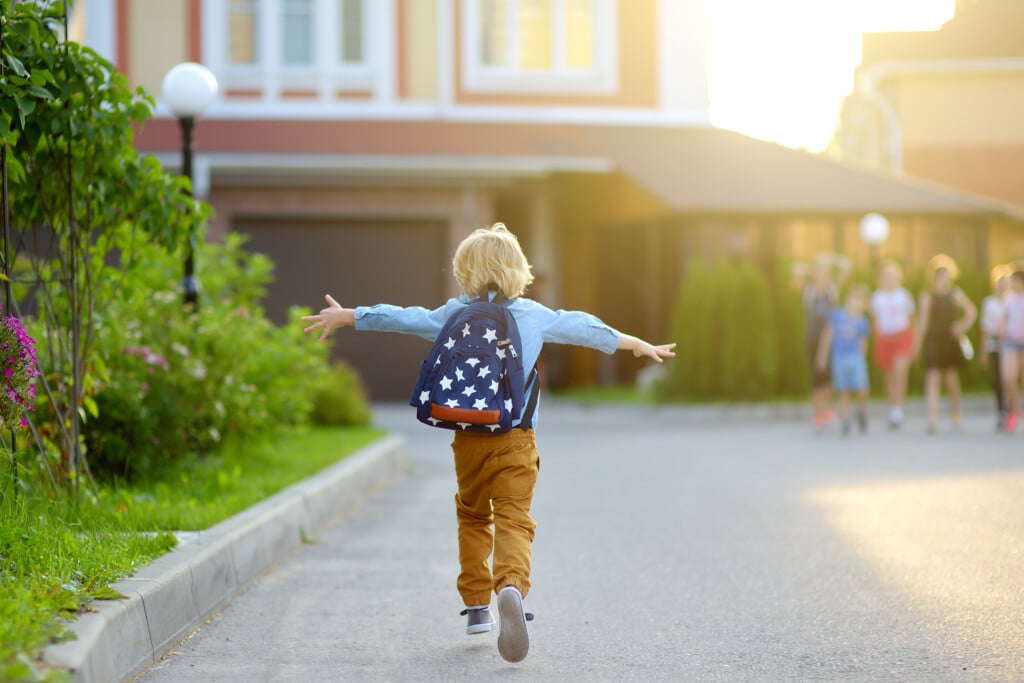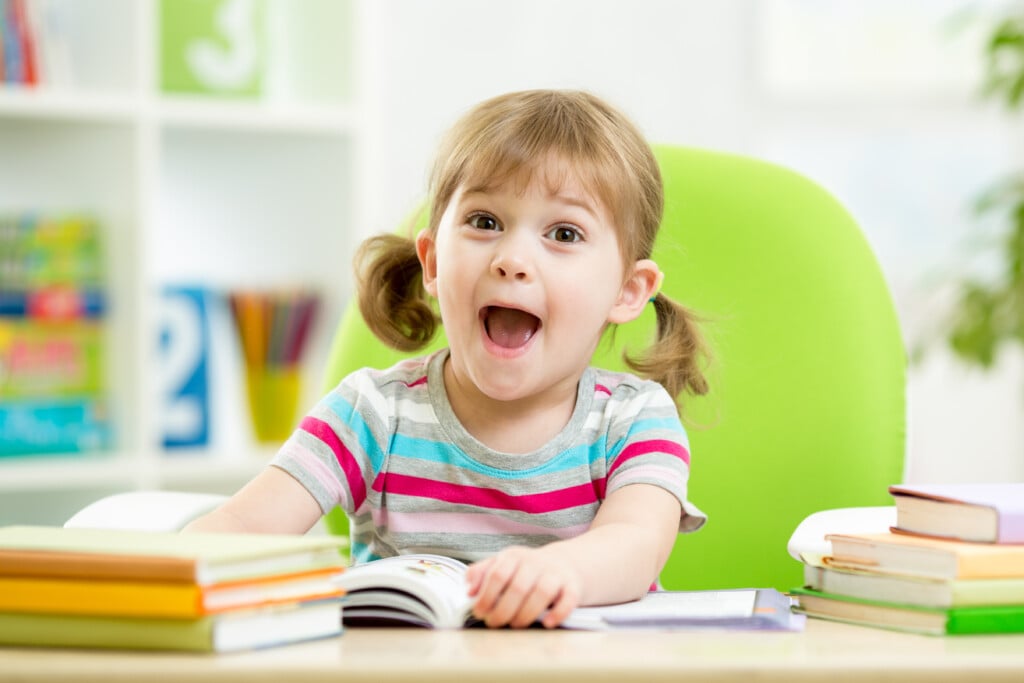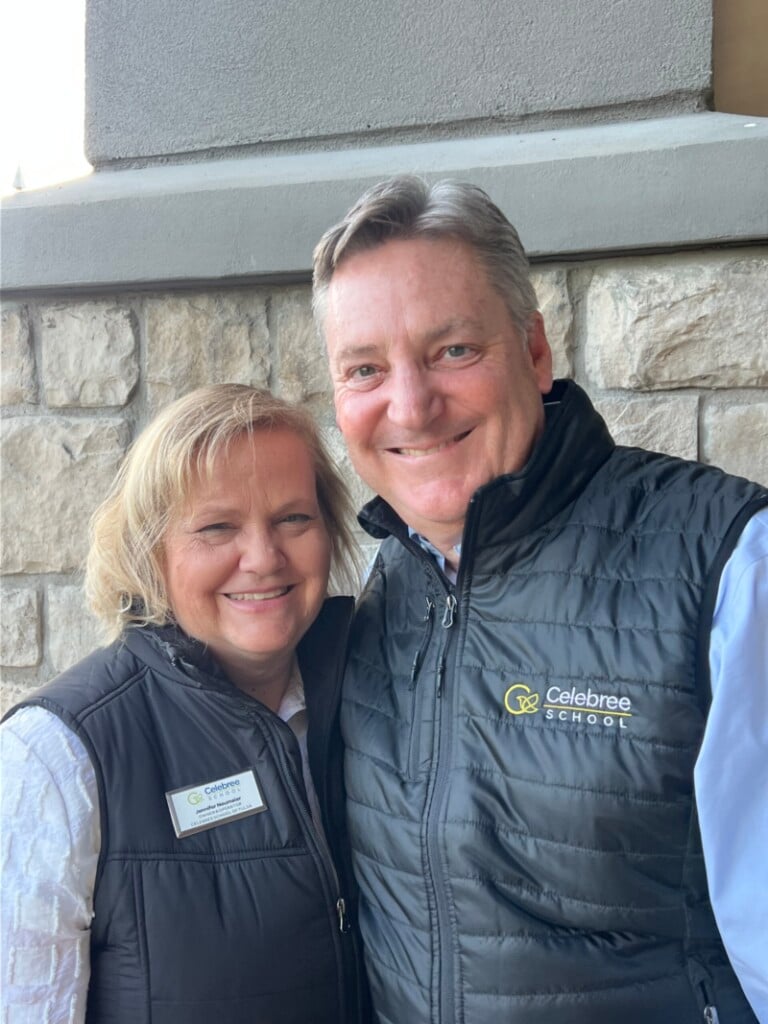Ready, Set, Kindergarten

Speaking to parents of young children on behalf of early childhood educators everywhere, let me share this: We see you. We see you when you first cross the threshold into our schools, clutching a belly bump, pushing a stroller whose only sign of occupation is a pair of impossibly tiny feet or offering an index finger to a shy little person who hides behind your legs and peeks into rooms with equal parts uncertainty and curiosity. We see you set a box of diapers and a small backpack on our cubbies as you leave, the brief cries of your little one following you out to your car. We see you dragging in a disgruntled little person who will not wear shoes or part with their half-eaten waffle. We see you when you have to chase that same little person down the hall, so eager to get to class that they careen into doorframes and bounce off like ping pong balls. And finally, we see you when you empty the cubby full of drawings, muddy boots and broken McDonald’s toys, leading your darling and wild child out of preschool for the last time. Next step, kindergarten.
It seems too easy to compile a list of things your child needs to know before they leave preschool for kindergarten. For me, it feels more relevant to share some things you as a parent might want to know before that day comes and things to remember as you ease into the brand-new year. In that vein, I asked some of the preschool educators and professionals I know for their feedback. I hope it helps you prepare and, in turn, prepare your children for their next adventures. You can trust us, after all. We see you.
Trust your values
While many parents may not feel ready, we can know we are capable, and we can trust that our children will have a foundation built on connections and values they have learned from family and preschool teachers.
“It is very common for parents to question whether their child is ready for kindergarten,” says Shelby Goodrich, assistant director of B’nai Emunah Preschool/former preschool teacher. “But when it comes down to it, the parent also has to be ready for their child to go into kindergarten (and no parent ever is). Knowing what to expect academically and being prepared to sit down to work on schoolwork with your child is important. A child that is kind and curious will always be ready for the next step. Do your best to trust the educators you have chosen and always be an advocate for your child.”
Establish routine
Toni Willis, an early childhood educator and nature education coordinator for Philbrook Museum of Art, stresses the importance of routine as children begin kindergarten. Children feel more comfortable if they know what to expect. Having an established drop-off routine can also help children feel more secure.
“Let your child know in advance the steps that will get them to school – waking up, getting dressed, eating breakfast – and develop a drop-off ritual that you and your child create together – for example, two hugs and a kiss – then leave,” she says. “Do not linger. When parents linger it sends the signal that the child is not safe without them. This plays right into the Erik Erikson psychosocial stages of development. If allowed, the child can be a self-starter instead of feeling inadequate to be on their own. Remember that growth happens in discomfort.”
Build confidence and problem-solving skills
“I think the main worry parents have about their child being ready for kindergarten comes in two parts: Do they know enough, and will they make new friends,” says Emily Smith, preschool teacher at B’nai Emunah Preschool. “I try to reassure parents by telling them that children are a lot more adaptable than we give them credit for. When a child starts at a new school, everyone is new. There are things we can do and say to help our kids feel more confident in a new environment. Visit the school or the classroom and meet the teacher. Also, role play with your kids how to introduce themselves and enter into play with others. How can you be a good friend to someone?”
Emily also encourages parents to help their children become curious learners and to ask questions as they begin their elementary school years.
“I remember reading somewhere that instead of asking your child ‘What did you learn today?’ you ask, ‘What questions did you ask today?’” she says. “I think about this a lot when I feel that anxiety creeping up on myself or in the language of a parent with concerns about their child. It is a good reminder that our kids have so many tools already to be the best problem solver and active participant in their own educational journey. Sometimes they just need a little reminder from us to keep asking those great questions and to have the confidence to do so.”
Transitioning from preschool to kindergarten is a big leap, but trust yourself and your child with curiosity, kindness – and a little preparation.
 Alicia Kobilnyk is an Early Childhood Educator who works with young toddlers. She finds joy and inspiration to write in their cheeky shenanigans, as well as those of her three daughters.
Alicia Kobilnyk is an Early Childhood Educator who works with young toddlers. She finds joy and inspiration to write in their cheeky shenanigans, as well as those of her three daughters.



